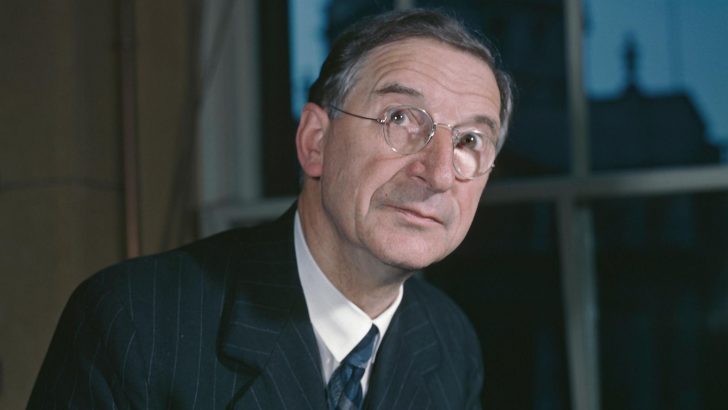De Valera: Volume 1 Rise 1882-1932
by David McCullagh (Gill Books, €24.99)
Joe Carroll
Apart from about eight full biographies of Eamon de Valera, there have been the hundreds if not thousands of articles and critiques covering his long life. What new is there to say?
David McCullagh, who is a journalist with RTÉ and author of books on John A. Costello and the 1948-51 Inter-Party Government, has made full use of de Valera’s personal papers hoping “to illuminate the real de Valera”.
McCullagh’s book, allowing for the fact that it only goes up to 1932, falls between the 1970 authorised biography by the Earl of Longford and Thomas O’Neill, which some have unfairly characterised as “hagiography”, and the highly critical one by Tim Pat Coogan in 1993 who summed up : “de Valera did little that was useful and much that was harmful.”
McCullagh concludes that “by 1932 his character had both shaped his career and been shaped by it; he entered office with certain skills and certain limitations. He was in the words of his colleague, Jim Ryan, ‘pliable but unbreakable’ – a mixture of determination and flexibility that would serve him well in his political career.”
Thanks to his journalistic skills, McCullagh’s impressive research does not become bogged down in detail and his narrative is marked by shrewd comments highlighting the twists and turns which characterised de Valera’s “rise”.
These begin in 1917 when he eased Arthur Griffith out of the leadership of Sinn Féin which he had founded and continued up to Fianna Fáil’s entry into the Dail in 1927, when the much denounced oath suddenly became “an empty formula”.
Puzzles
Some puzzles attached to de Valera’s long life still defy definitive answers. The origins and later life of his father Vivion, the absence of any written evidence of his marriage to Katherine Coll in New York, or was it New Jersey? McCullagh calls Coll an unreliable witness in these matters.
Did de Valera have a nervous breakdown when commanding the garrison at Boland’s bakery (not mill) in 1916? Was he saved from execution by his American citizenship or by intervention of William Wylie with General Maxwell? Why did he not lead the Treaty negotiations in London? Even Lord Longford, his devoted admirer, argued that he should have. Did he set Collins and the team an impossible task?
Was he largely responsible for the Civil War, or was he pushed aside by the IRA in the Four Courts? How could he make the “wading through blood” speeches at a critical point before hostilities broke out? Was there sharp practice in the part-funding of the Irish Press with money from the American bonds?
McCullagh digs out all the relevant evidence on these crucial stages in de Valera’s life and gives his own conclusions, while admitting sometimes that the evidence is inconclusive and at this stage likely to remain so.
As a good reporter, McCullagh seizes on the details that bring the ‘Long Fellow’ to life. His rugby exploits in Rockwell and Blackrock including a trial for Munster. His getting drunk after one victory, his insistence on taking all the place kicks, and often missing to the irritation of his team mates. His fleeting appearance in novels by Scott Fitzgerald and Sinclair Lewis as a result of his prolonged fundraising tour in the US in 1919-20.
The importance of Catholicism to de Valera is mentioned from time to time, but with less emphasis than that by Longford and O’Neill, who wrote that “his absorption in the life and teaching of Jesus might qualify him as an amateur Christologist”.
Although refused the sacraments along with other active Republicans during the Civil War, de Valera insisted he was not “excommunicated” and claimed that he had raised this question with the Pope (Pontiff not specified) and the Pope agreed with him.
In a 1923 letter to Monsignor Salvatore Luzio, who had been sent to Ireland by Pope Pius XI to try and end the Civil War, de Valera wrote: “Though nominally cut away from the body of Holy Church, we are still spiritually and mystically of it and we refuse to regard ourselves except as his children.” McCullagh comments that “this wording suggests he did at the time consider himself as excommunicated”. Another unsolved mystery?
The second volume will cover important phases in de Valera’s life such as the Economic War, the new Constitution, the return of the Treaty Ports, Irish neutrality in World War II, the failure of the anti-Partition policy, the post-war economic slump leading to huge emigration, and his years in the Áras from 1959 to 1973. We will have to wait to see how his reputation emerges from these events.
Joe Carroll is a former political correspondent and the author of a book on The Emergency.
The Books Editor adds:
A small point in passing – the one volume ‘authorised’ biography by Lord Longford and T. P. O’Neill, running to 494 pages, is a version of the “official” biography in two volumes in Irish by Tomás Ó Neill (1968-1970), based on the President’s private papers, which took 632 pages to get to the new constitution of 1937; if completed, it would have run to over 1250 pages. Both books illustrate de Valera’s anxiety to control the judgement of history on his life – something that seems never to have bothered other leaders of the state.
The Irish version contains extended discussions of contentious matters, such as the death of Cathal Brugha. McCullagh is not unique in leaving this biography unconsulted, along with other books on the period in Irish – the copy in the National Library is almost unread.
The ‘authorised’ version was published in London in November 1970, but de Valera demanded that an Irish ‘first edition’ from the same printing was issued in Dublin by Gill & Macmillan!



